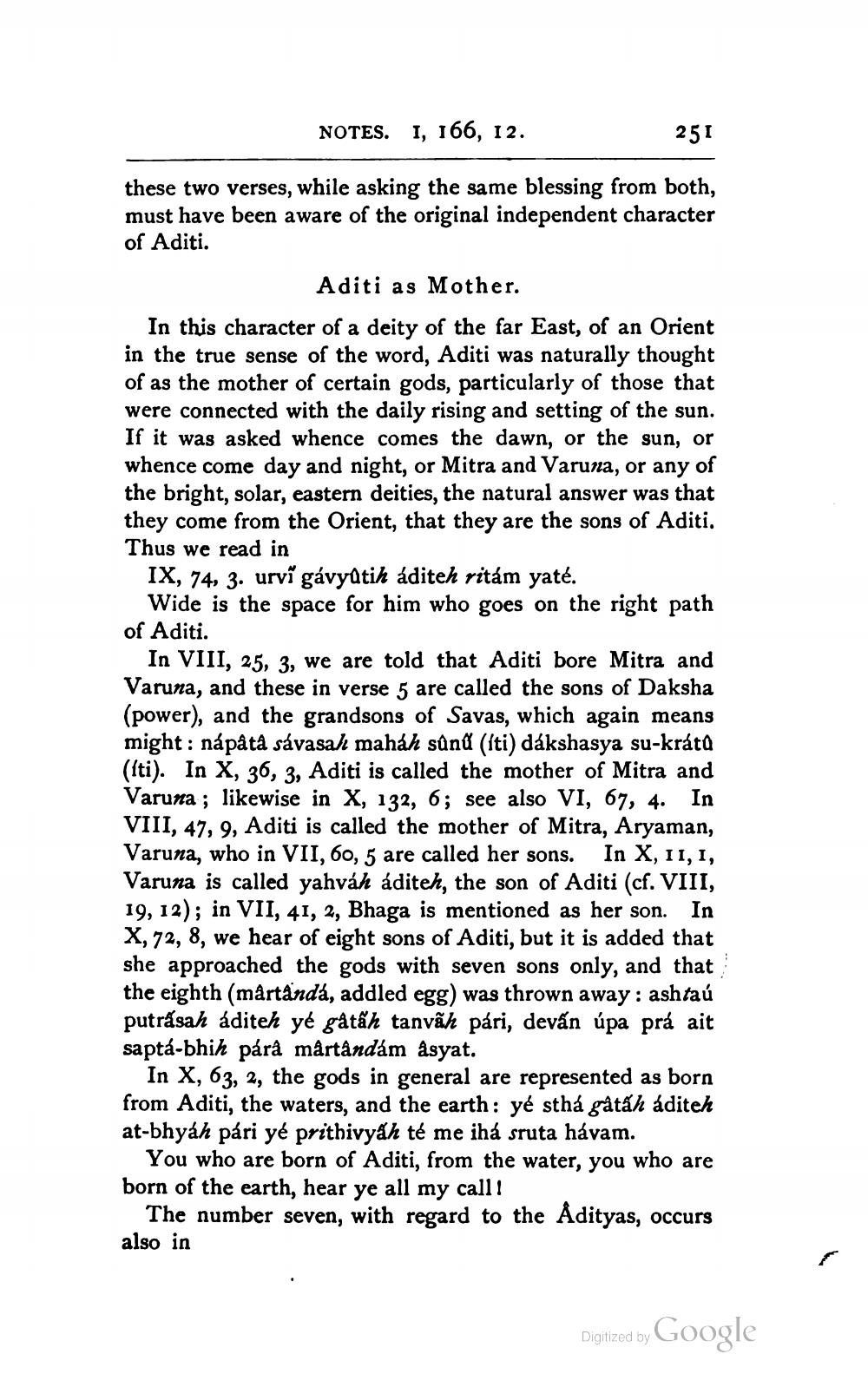________________
NOTES. I, 166, 12.
251
these two verses, while asking the same blessing from both, must have been aware of the original independent character of Aditi.
Aditi as Mother. In this character of a deity of the far East, of an Orient in the true sense of the word, Aditi was naturally thought of as the mother of certain gods, particularly of those that were connected with the daily rising and setting of the sun. If it was asked whence comes the dawn, or the sun, or whence come day and night, or Mitra and Varuna, or any of the bright, solar, eastern deities, the natural answer was that they come from the Orient, that they are the sons of Aditi. Thus we read in
IX, 74, 3. urvî gávyatih aditeh ritám yaté. Wide is the space for him who goes on the right path of Aditi.
In VIII, 25, 3, we are told that Aditi bore Mitra and Varuna, and these in verse 5 are called the sons of Daksha (power), and the grandsons of Savas, which again means might: nápåtà sávasah maháh sûnů (iti) dákshasya su-krátu (Iti). In X, 36, 3, Aditi is called the mother of Mitra and Varuna ; likewise in X, 132, 6; see also VI, 67, 4. In VIII, 47, 9, Aditi is called the mother of Mitra, Aryaman, Varuna, who in VII, 60, 5 are called her sons. In X, 11, 1, Varuna is called yahváh aditeh, the son of Aditi (cf. VIII, 19, 12); in VII, 41, 2, Bhaga is mentioned as her son. In X, 72, 8, we hear of eight sons of Aditi, but it is added that she approached the gods with seven sons only, and that the eighth (märtändá, addled egg) was thrown away: ashtaú putrasah aditeh yé gåtäh tanvāh pári, devấn úpa pra ait saptá-bhih pára mârtândám asyat.
In X, 63, 2, the gods in general are represented as born from Aditi, the waters, and the earth: yé stha gåtáh aditeh at-bhyah pári yé prithivyáh té me iha sruta hávam.
You who are born of Aditi, from the water, you who are born of the earth, hear ye all my calli
The number seven, with regard to the Adityas, occurs also in
Digitized by
Digized by Google




